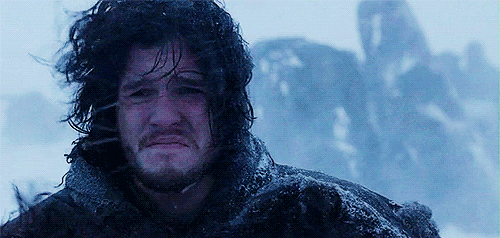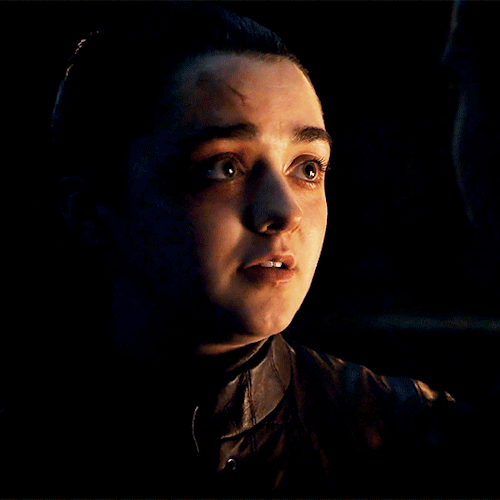16.11.18
I kind of always knew I’d get a lot of cosmetic procedures. To resist the trend of fillers seemed futile, but I swear I tried. I’d already gotten my teeth straightened and whitened (it took a God-awful amount of time) and had been to various clinics to check out their prices and procedures for breast augmentations and rhinoplasty. Fillers seemed very tame in moderation.
This is my choice, but that’s not to say this choice doesn’t come with certain implications. I’m not here to defend my choices regarding cosmetics, I’m here to explore the topic and be honest about what I’ve had done.
These unrealistic standards of beauty can only be dismantled if we’re honest about how they were achieved. I’m not saying that in stating my intention, all systematic bonds and structures of privilege are disintegrated and that all beauty standards are dropped, no, I just want to be honest. As I type this I know how problematic this is.
But, to me it’s like when some people in the fitness industry say they just workout and eat healthy, when the truth is they’re eating two meals a day, smoking instead of eating, and keying coke until 3am so they don’t deal with the calories of alcohol and their appetite is destroyed for the foreseeable future. I don’t have a problem with that – I just wish people were more honest about how those results were achieved.
So, if you didn’t already know, I have lip fillers. As of last Friday, I also have cheek fillers and fillers to erase my frown lines. And you know what? I feel fucking fabulous.
Shame the devil and tell the truth.
When I first got my lips done, I walked into work with bruising and swelling – don’t get me wrong – it didn’t look cute. (In the beginning, I was too scared to ice it, so I took paracetamol and left it to settle. Now I know icing, in moderation, is fine and greatly reduces the swelling.)
My body quickly became a topic of interest, the change in my appearance propelled my body further into public discourse and served as a welcome mat of commentary. Initially, it was just my appearance that came into question. Not only were the questions rude but they were disrespectful; people’s assumptions were that my self-esteem was so low I felt I needed it (which, if that was the case how awful would that have made me feel?!).
“You don’t need it!” Yes, Barbara, I know. I wanted it.
People’s comments were hurtful, designed to keep me from pursing further work to ensure that their male gaze was considered precedent over my agency and their ideals of beauty were kept standardized.
“You look ridiculous” was common. “I don’t like it” was a close runner up. The implications of both were “I don’t find it attractive therefore it’s a waste of money”.
In my opinion, this was a highly narcissistic move; even when my body changed, in commenting on it and their distaste they still managed to make it about them. I wish I could say this was a rare occurrence. It’s funny how no one brings attention to my teeth whitening – perhaps that is exempt from beauty standards or was deemed necessarily by my peers. * Eye roll * Go figure.
In academic discourse, this is familiar ground. Non-male bodies are often considered part of the “public,” a specimen to be controlled, validated only by heteronormativity and the male gaze, critiqued to ensure their standard of beauty was, indeed, still standard.
Suddenly, I had more money than sense and my choices became a great concern of everyone else (because clearly it affected them so deeply and directly.) As if I hadn’t worked hard for my money and wasn’t highly informed on the procedure.
Yes, not only did my economic status come under scrutiny, but so did my intelligence and agency. It was like a highly-educated woman (I have a master’s degree TYVM) couldn’t undertake cosmetic surgery because that would invalidate both her intelligence and her choices. It was as if within fifteen minutes, as the fillers were injected into my lips, every single brain cell died and was replaced by images flickering from The Kardashians, to lip gloss, and high heels. It was almost as if the space where my cells previously lived became inhabited by glitter and cosmopolitans – my eyes glossed over and I became completely vapid – all of my previous education was erased and I was no longer a feminist.
As if. Though, I do thoroughly enjoy a good dose of glitter.
I think the idea that it wasn’t for the male gaze and was just something that I had wantedto try was incomprehensible, hardly anyone could wrap their heads around it. I can only speak for myself, so my choice to have fillers was because I see cosmetic surgery (as this isn’t particularly invasive) as I view make-up: to enhance beauty that is already there, or to create a little more beauty where you feel you’d like it. But, let’s be real, in this day and age most beauty is created. Dita Von Teese has said it time and time again.
Others may do it because they feel insecure, maybe they don’t. I can’t speak for them, but what I can say is that there is no shame in that. In a culture where non-male bodies are criticised for not looking like the common standard of beauty and then in the same breath chastised for trying to obtain that (through, I don’t know, cosmetic surgery for example) there is no shame in pursuing your ideal of beauty. Jillian Michaels often comments that there is no shame in having a little vanity – what is so wrong in taking pride in your appearance? The trendy, counter-culture cynicism against vanity, selfies, avocados and vintage clothing is just that: trendy. It’s the flipside of the same culture, it’s not exactly original.
Feminism and fillers?
When feminism has become such a trendy topic of the last year and empowerment is a buzzword swung around on a rope called capitalism and commodity culture, where is the line between agency and a larger, systematic problem drawn?
In this particular time when choices are lauded as empowering, we must be aware of both the muted conversation surrounding objectification of non-male bodies, as well as the distressing similarity between “celebrating creative agency and denying systematic patterns,”[1]Quite simply, the correlation between womanhood and the desire for beauty has “long been upheld by patriarchal discourses” that resigns them to objects to be viewed, enjoyed and consumed[2].The most recent wave of feminism, whatever you want to call it (maybe even post-feminism) is lauding physical transformation as empowering [3].
That being said, condemning individuals for their choices in a culture they haven’t shaped is also harmful, “even if those decisions are ones we regard as medically unnecessary and politically distasteful,” (Angela Nuesatta.)[4]In this sense, this point adds to a complex, nuanced argument surrounding cosmetics and the non-male body. If these procedures aren’t at one with beauty standards or heteronormative desire, does it make them any more or less on par with feminism and agency?
So, let’s really get into it. I have A LOT of privilege. I’m white, I’m able-bodied, I’m a cisgender woman; these privileges grant me opportunities, whereas others who don’t have those privilege might not (and often don’t.)
More to the point, some argue that being attractive is a form of privilege; research confirms that “attractiveness” creates more opportunities, romantically and economically[5].
I wouldn’t say I’ve necessarily had more success in either of those departments after my filler-fun run, but I have felt more confident. It’s not like I didn’t like the way I looked before – in fact the one thing I’m most insecure about I haven’t undertaken, yet (it’s my nose, I dislike how large it is) – I just enjoy how different I look now. One to me is not better than the other. I don’t feel as though I need these procedures, but I want them, I enjoy their results. Just as much as I enjoyed my face before.
The problem, of course, is that as a white, cisgender, able-bodied woman I am upholding beauty standards that can be reductive. Again, I can only speak for myself and I understand that this is problematic behaviour for those reasons and more.
When I align myself with the third-wave, reclaimational feminist politics[6], myembrace of the femme would mean something completely different than to someone with another positionality. Therefore, it can greatly impact the notion of reclaimational third wave feminism.
Here is where I must acknowledge that the master’s tools will never dismantle the masters house. And I can survive in the master’s house; people who don’t look like me or have my privileges may not.
Oh my god, you have to give me the name of your surgeon!
In this particular time, these procedures have become so much more accessible. Nipping in to get your lips done has become the millennial equivalent of popping out for a nail appointment. The procedures that were once only for the rich and famous have become readily available for the everyday, 9-5 worker[7]. In this sense, it gives access and more options to those who may be striving for a visual image that matches their identity. The cost for some maybe off putting or unachievable altogether.
Knowing that I wanted these treatments, I saved up over a few months. Because these fillers last a good 7-9 months, I didn’t necessarily need a top up…but I wanted them. Thinking about it, it wasn’t exactly an extortionate amount of money…to me. My privilege is showing, isn’t it?
My practitioner is Katie Allen. She owns her own company called Alien Aesthetics and if you are looking for work I highly recommend her. Katie has always been welcoming, kind and informative every time I’ve seen her; she has two degrees under her belt and holds down a nursing job at the same time. Balancing the two is no easy feat.
Katie is highly successful, firstly, because she’s amazing at her job, and secondly, because her work ethic is unparalleled. Working with her Mom, Julie and predominantly alongside other women, Katie often stresses the importance of supporting one another in business. Her prices are more than reasonable and she frequently posts cheaper alternatives as part of a modelling deal or prize draw, rewarding her followers and regulars.
The first time I got my lips done, she talked me through everything, the procedure, the aftercare and where to reach her if I needed anything. We started small, 0.5mil. Before each injection she asked me if I was ready, and kept me up to date on where we were during my treatment. She continues to do this even as I approach my 7thor 8thappointment.
Always checking what look I’d like to achieve, we’ll chat, I’ll show her picture references and when I’m frozen, mid-procedure she’ll ask if I’m okay. I’ll try and mumble something that sounds affirmative.
After the numbing cream, it’s not exactly painless but what I’d call uncomfortable. Personally, as long as I don’t look at the needle, I’m fine. It usually takes 15 minutes to sink in and you feel like a bit of a boob sat there with white stuff plastered around your mouth (we’ve all been there, amirite ladies?) But to Katie, it’s second nature, she doesn’t bat and eyelid.
My cheek fillers were a little different, it felt like a liquid pressure was spreading onto my cheek bones. It didn’t hurt, it was initially uncomfortable but soon settled down. They’re still a little sore but look absolutely amazing and, as Katie said, create a more structured, lifted image. She also said they’d look better in two weeks, when the swelling completely settled. If it only gets better I can wait to see what it’s going to look like in two weeks – I already adore them.
I hope I’ve addressed some questions that some of you might have about it. But Katie, obviously, is the person to approach when it comes to these procedures. Pixie is the current admin of their Instagram page and is just as friendly and informative as Katie. (Don’t worry, I gotchu, her company is tagged in this post and will be linked at the bottom.)
I know I don’t have all the answers or the perspectives, I just wanted to share my experience. I don’t mind people asking me questions about the procedures, how I felt, what the process is like, who I go to. I do mind invasive and rude questions that place my self-esteem as frail and my now altered look as unattractive. Because that is invasive and rude, who raised you?
I enjoy the look fillers give me, and, why wouldn’t I? I curated it. So, I’ll say it, I’m a filler queen. I enjoy my treatments and love the results, I don’t see myself stopping them anytime soon and will more than likely begin to explore more invasive procedures (hello, new nose). But, until then, I’ll revel in my swollen cheekbones and lips.







